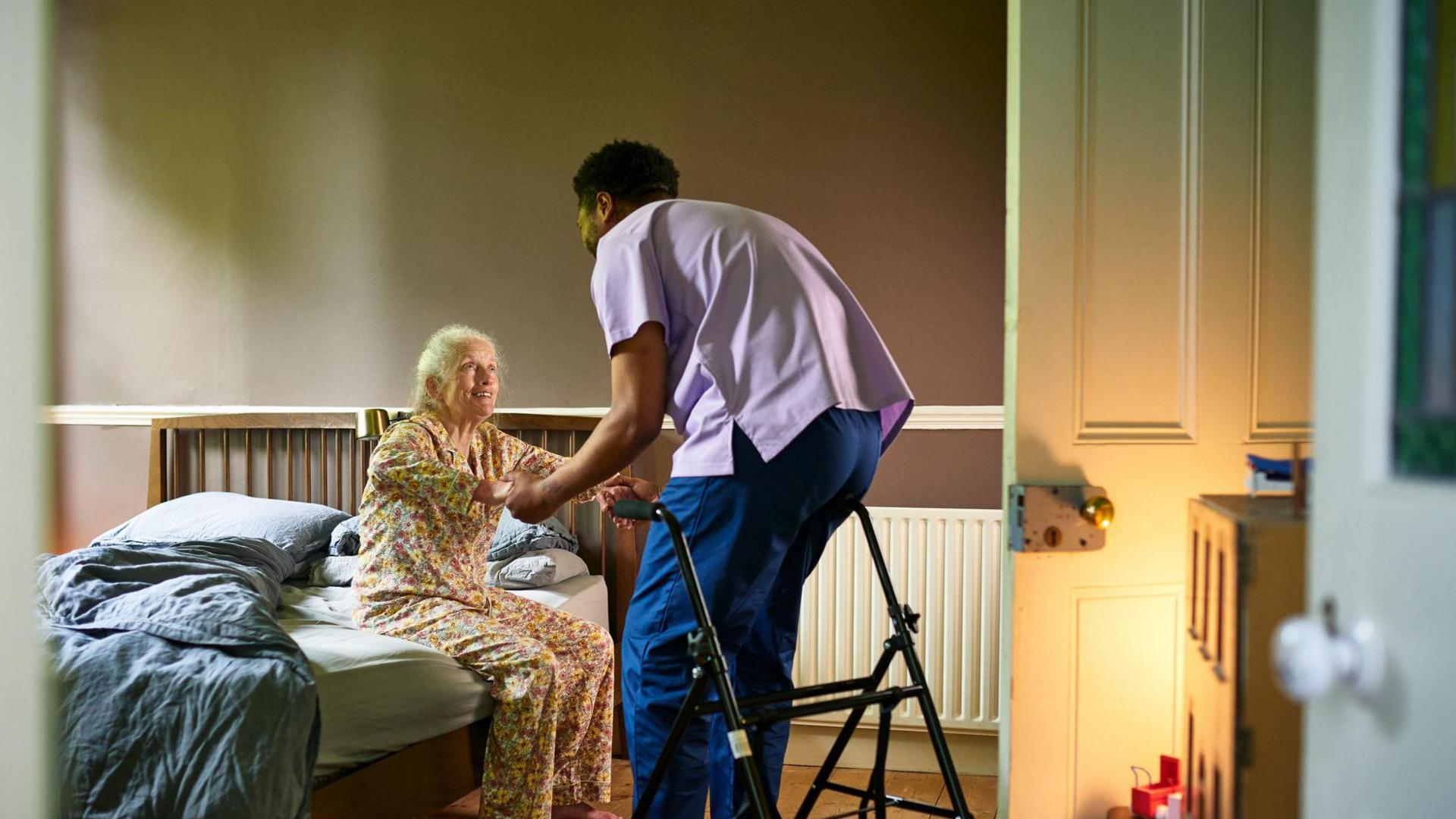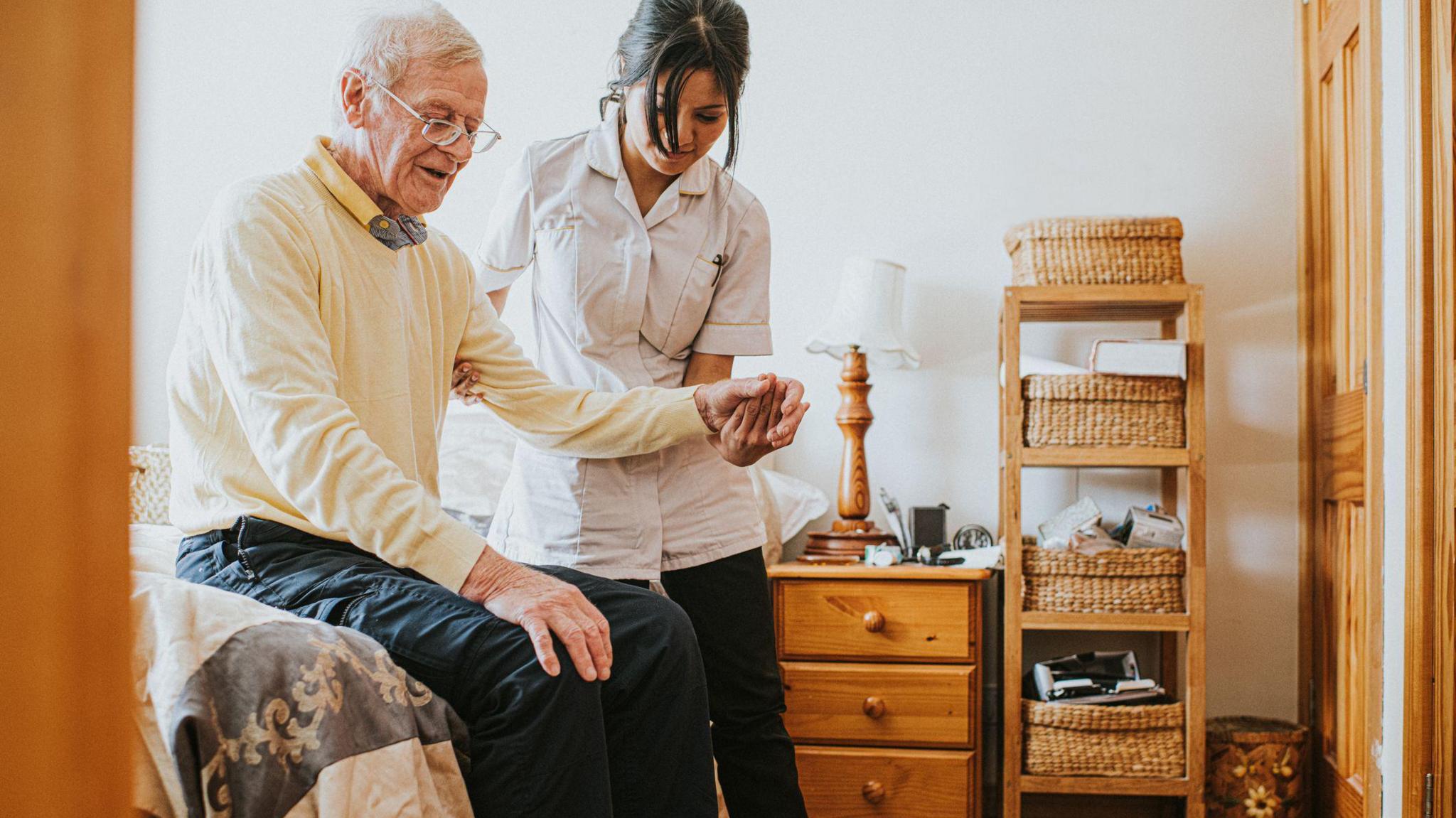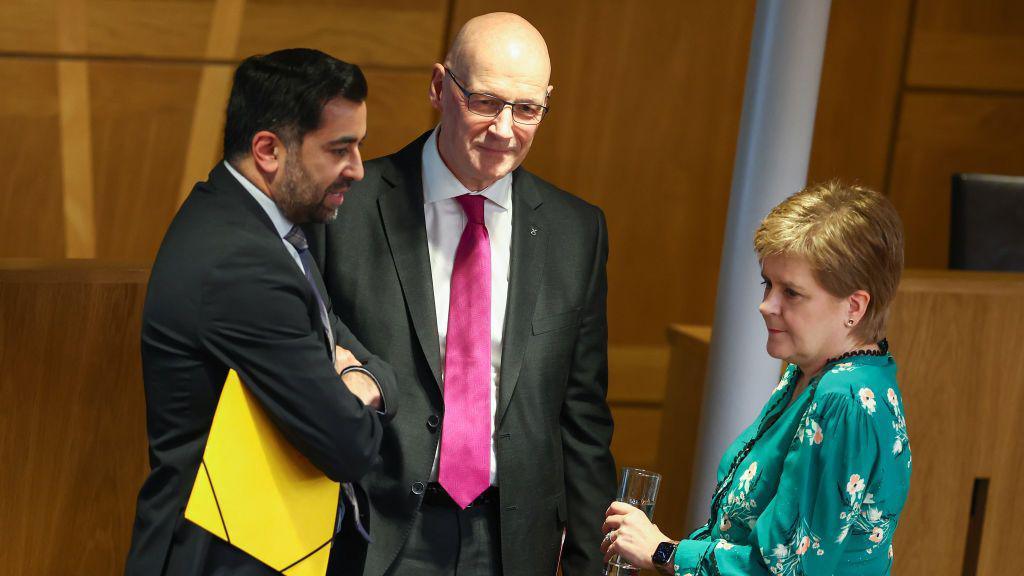Why was Scotland's National Care Service scrapped?

- Published
After years of delay and dispute, the Scottish government has ripped up its plans for a National Care Service.
The plans have gone from the flagship announcement of the parliamentary term and potentially a cornerstone of Nicola Sturgeon's legacy, to a non-statutory advisory board.
Some £30m was spent in the process, amid a series of consultations, legislative redrafts and political rows.
But when the plans were first announced, there was widespread support for the principle of reforming social care. Many were in favour of the idea of ending a "postcode lottery" across different areas.
So what happened to bring the National Care Service crashing to earth?

Has it been scrapped?
To be clear, yes.
It might be a bit confusing, given the government says it remains committed to a National Care Service, and that the bill to set it up is still going through parliament.
But care minister Maree Todd has agreed to remove part one of the bill - the part literally titled "the National Care Service".
The vision originally set out by Nicola Sturgeon - of a game-changing network of care boards across the country, a mirror for the NHS - is completely gone.
It had already been hugely diluted, stripped back to a national oversight board, amid concerns over costs and a lack of detail in the plans.
All that's left now is a non-statutory advisory board, and widely-supported proposals to strengthen the rights of people living in care homes, known as "Anne's law".
While it will no doubt do important work, the government has almost 300 advisory boards, external currently active - this is not the game-changing innovation of a National Care Service as it has ever been promised.

Delivery problems
The vision of a groundbreaking new care service began its slow-motion crash into harsh reality when the government started trying to construct a legal framework for it.
The legislation laid before parliament was an "enabling bill", which set out the broad idea of a care service but left finer details to be filled in by ministers later.
MSPs reacted with alarm, with almost every committee in the parliament questioning how they could properly scrutinise the plans when there was so little substance attached.
The bill was held up repeatedly due to a lack of firm costings attached to the project, with members demanding that fresh financial memorandums be drawn up.
Money quickly became a problem, and the budget for setting up the scheme - projected as £2.2bn over ten years at one point - became an easy target when ministers needed to make cuts.
That inevitably led to delays, with the target delivery date drifting from 2026 to 2029.
And when the plans were stripped back, it made the legislative process even more complicated, requiring massive amendments to the bill already before parliament.
It made it all the easier for people to call for the government to start over from scratch - or indeed to bin the plans and just channel the funding directly to frontline care instead.

Industry concerns
The government was keen to pursue a "co-design" process with those who would be closely involved in the running and use of a National Care Service.
The sheer breadth of groups involved in caring underlines the difficulty of reform - there are councils, health boards, "integrated joint boards", health and social care partnerships, independent care providers, staff unions, and more.
While there was support for the principle of improving care services in many quarters, some of these groups had concerns about the plans from the very outset - and others grew increasingly alienated as time went by.
The original vision would have shifted responsibility for staffing and the delivery of care to the new care boards - which councils saw as undermining local control of services.
The redrafted plans would have seen councils keep more of that control under a "shared accountability" model, but that too ultimately proved unpopular.
The decision of council leaders to walk away from negotiations in September 2024 was really the moment which signalled the end of the road.
It followed on the heels of unions which represent many carers - including Unison - coming out against the proposals.
Without the support of those at the sharp end of actually delivering care, there was just no way that the NCS could become a reality.

Three successive first ministers have wrestled with the delivery of the care plans
Political spats
The collapse of the care service plans has spanned the reigns of three first ministers, each of whom insisted at some point that they were completely committed to delivering on them.
Politics has undoubtedly played a part.
But when it was first announced, there was not a wave of opposition to the idea of a care service at Holyrood.
Indeed a few of the opposition parties remain in favour of the plans in principle - Labour in particular have just run on a manifesto promising to set one up at a UK level.
But positions hardened as the policy process dragged on and concerns over the lack of detail in the bill mounted.
The final straw came when the Greens withdrew their support in October 2024.
That left the SNP completely isolated, with no clear way of building a coalition to get the bill passed.
The government is actually quite keen to stress that there is no route through parliament for the bill, because it spreads the blame around other parties.
But it is fair to reflect that political opposition has grown over time, in parallel with concerns about the proposals across a much wider base.